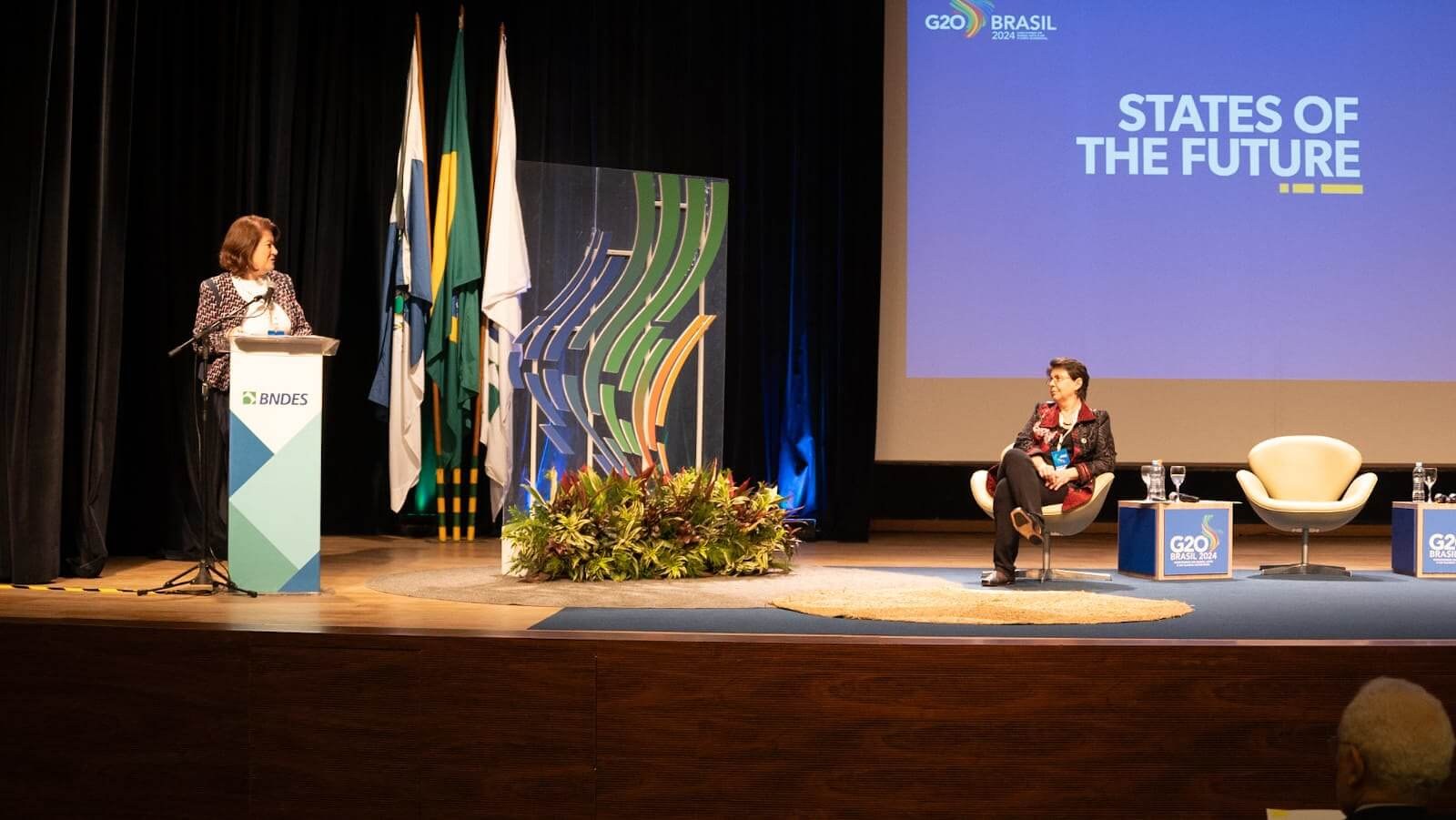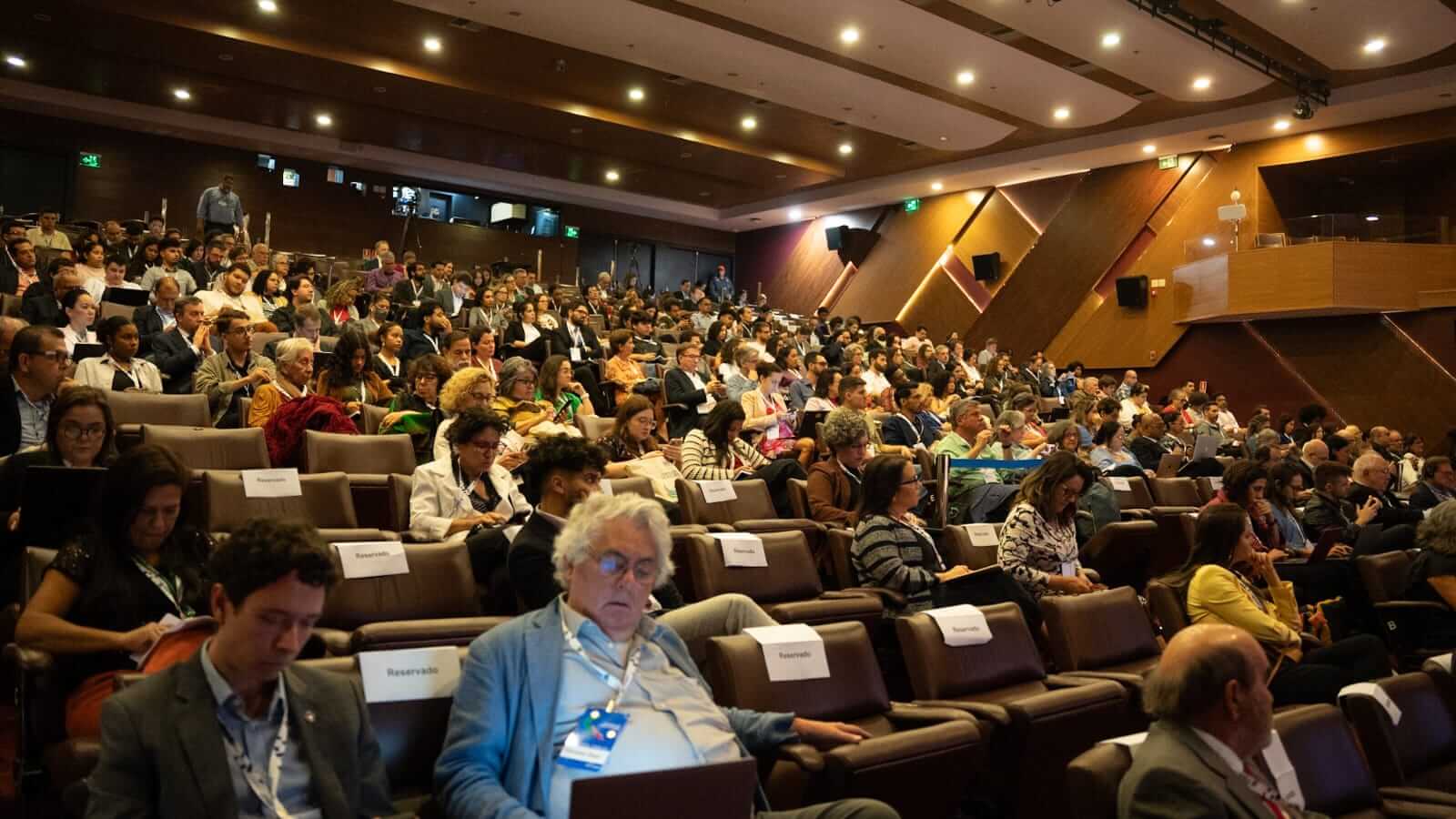Through its internal and external coordination capabilities, “State of the Future” is crucial to effectively address the climate crisis
Proposal to create a permanent group to discuss the State at the G20 was launched at a side event in Rio de Janeiro. Participants emphasized the need for international coordination towards adaptation and mitigation of extreme climate events.

Addressing the various crises taking place on the national and international stage, particularly the ecological crisis. This was the topic of the opening session of the second day of the “States of Future” side event taking place this week at Brasil’s Development Bank [Banco Nacional de Desenvolvimento Econômico e Social/BNDES] headquarters in Rio de Janeiro.
The opening session was attended by Miriam Belchior, Executive Secretary of Brasil’s Chief of Staff Office [Casa Civil da Presidência da República do Brasil], and Tereza Campello, Social and Environmental Director at BNDES.
According to Campello, States are not prepared to face the climate change that is already underway, regardless of their level of development. “We must change the plane’s wing during its flight, taking action on two fronts: organizing ourselves to face climate extremes and address mitigation, adaptation, and reconstruction of our economies, while at the same time preparing the State to face these challenges,” she said.
Campello presented the "Amazon Restoration Arc" project, which aims to restore 24 million hectares by 2050, with an intermediate goal of 6 million hectares by 2030. The initiative seeks to capture carbon, preserve biodiversity, and generate employment and income by mobilizing various production chains and technologies. Forest restoration is regarded as the only scalable technology for carbon capture and is essential for keeping the global temperature rise within safe limits, as highlighted in G20 discussions on climate action.
It was highlighted that Brasil has both the technology and the political will to lead this initiative but needs support and resources, including from the private sector. The involvement of all sectors of society is crucial for the success of this mission, which seeks to ensure environmental sustainability and drive economic development in the Amazon.
Strengthening global governance is a necessary challenge

Miriam Belchior reiterated that a "State of the Future" is capable of developing and integrating internal capacities, such as planning and legitimacy, with external capacities, such as international cooperation and global governance, which is essential to effectively address the climate crisis.
The executive secretary highlighted the need to strengthen international governance regarding climate change, highlighting that global capacity is crucial to addressing this challenge. "Being able to restore is not enough if other countries do not also make efforts in the same direction," said Belchior.
Other issues such as the regulation of technology platforms and the taxation of the super-rich, require global alignment to prevent tax evasion and ensure an international taxation standard.
Internally, States must increase their capacity for medium and long-term planning, overcoming the influence of the speculative financial market and strengthening their legitimacy as national leaders. This includes transparent dialogue with strategic stakeholders such as the private sector, workers, federative entities, and civil society. The ability to engage in dialogue and transparency are both essential for governments to be able to establish and achieve goals for economic, social, and environmental transformation.
“It is imperative that States ensure that their public service workforce represents the diversity of their societies and not their national elite. It is also important that States are capable, and that they reflect society. Only then will they have greater capacity to implement public policies that are fairer and more inclusive,” said Belchior.
Then, she proposed the creation of a permanent group to discuss the State at the G20 — considered a concrete measure to move forward in the debate.
At the Keynote Lecture, Ha-Joon Chang — research professor at the SOAS University of London’s Department of Economics, and co-director of the Centre for Sustainable Structural Transformation (CSST) — expressed his concerns about the climate crisis, which he considers the biggest crisis of all.
“We have experienced several crises throughout history. However, our time is unique in that the ecological crisis is now rapidly reaching the point of no return. What I am trying to say is that we need to understand the nature of this phenomenon correctly if we are to find a good solution for it,” said the professor.
In his lecture on “Megatrends, polycrises and geopolitical changes: how to understand the changes in the world,” Ha-Joon Chang highlighted that social bias is evident, since perceptions of crisis vary according to the socioeconomic and geographic context, reflecting historical and current inequalities.
A second aspect highlighted was the possibility of a “second cold war” in the increasing rivalry between the United States and China — which threatens to worsen the climate crisis due to the slowdown in international cooperation that is necessary to face this global challenge.
“States of the Future” is organized by the ministries of Management and Innovation in Public Services [Ministério da Gestão e da Inovação em Serviços Públicos/MGI]; Foreign Affairs [Ministério das Relações Exteriores/MRE); Development, Industry, Trade and Services [Ministério do Desenvolvimento, Indústria, Comércio e Serviços/MDIC]; BNDES; and the United Nations Development Program (UNDP). The event was organized by Maranta and the Organization of Ibero-American States for Education, Science, and Culture (OEI) in Brasil. “States of the Future” is supported by the Open Society Foundation and República.org.